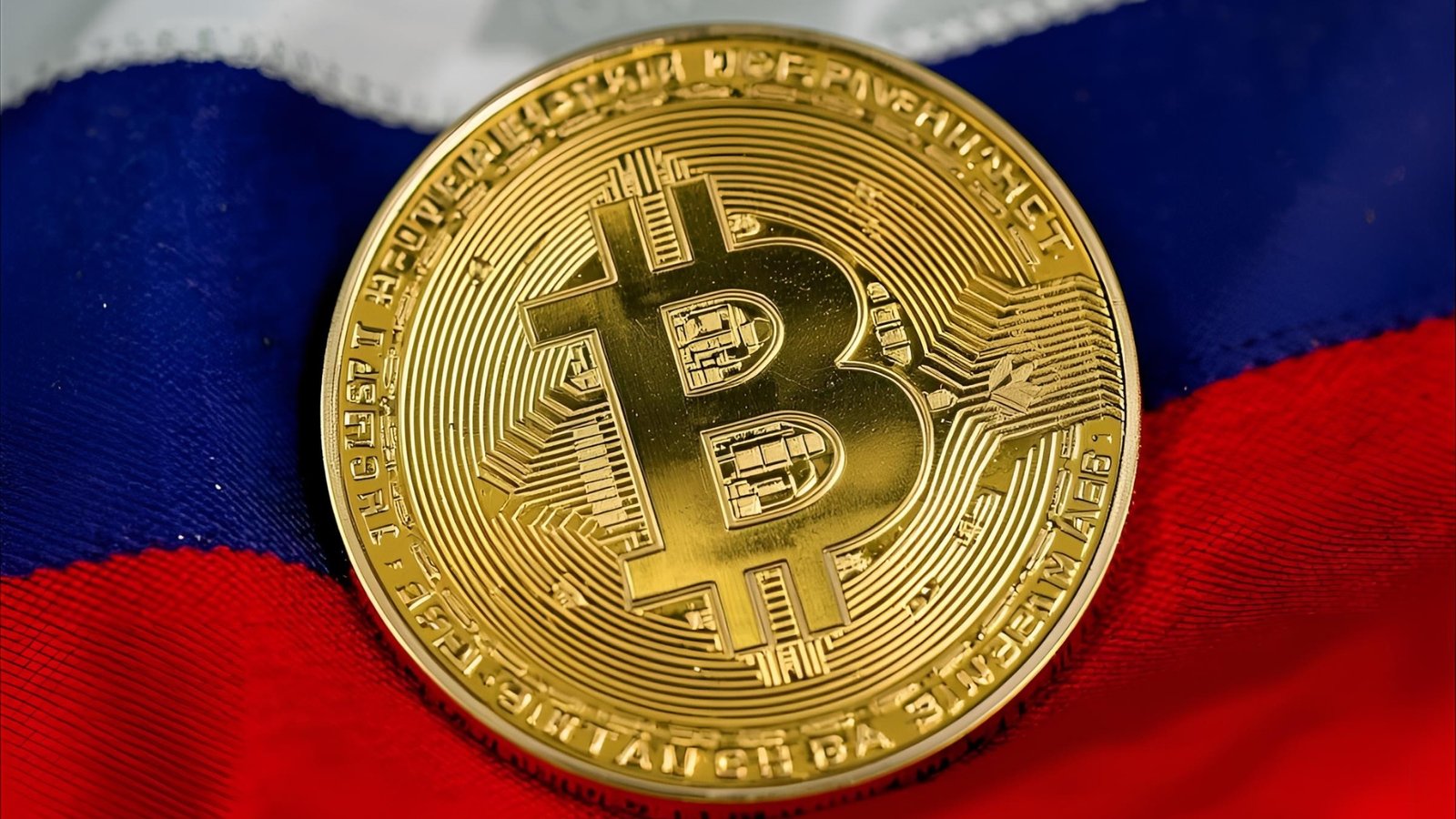Russia crypto bank initiatives gain momentum in the country’s financial sector. Recent developments suggest that Russia is seriously considering the establishment of a specialized banking institution dedicated to serving cryptocurrency miners and digital asset businesses. This groundbreaking move could fundamentally reshape how mining operations access financial services and legitimize crypto-related businesses within Russian borders.
The proposed Russia crypto bank represents more than just another financial institution—it signals a strategic pivot toward embracing digital currencies as legitimate economic instruments. As global cryptocurrency adoption accelerates, Russia’s approach to creating dedicated banking infrastructure for miners demonstrates forward-thinking economic policy that could position the nation as a leader in the digital finance revolution.
What Is a Crypto Bank and Why Does Russia Need One
Traditional banking institutions have historically maintained a cautious relationship with cryptocurrency businesses, often refusing services or imposing restrictive conditions on crypto-related accounts. A Russia crypto bank would specifically cater to the unique needs of cryptocurrency miners, trading platforms, and blockchain companies, providing essential financial services without the regulatory complications that plague conventional banks.
The rationale behind establishing a specialized crypto bank in Russia stems from several compelling factors. First, Russia possesses significant mining operations due to its abundant energy resources and favorable climate conditions for cooling mining equipment. Second, the country has been exploring ways to reduce dependence on traditional Western financial systems, making cryptocurrency infrastructure increasingly attractive.
The Current Banking Challenges for Russian Miners
Cryptocurrency miners in Russia currently face substantial obstacles when attempting to access basic banking services. Many traditional banks refuse to open accounts for mining operations, citing regulatory uncertainty and compliance concerns. This forces miners to operate in financial grey areas, limiting their growth potential and creating unnecessary operational complexities.
The proposed Russia crypto bank would eliminate these barriers by offering:
- Specialized account services for mining operations
- Streamlined compliance procedures
- Digital asset custody solutions
- International payment processing for crypto businesses
- Lending services backed by digital assets
How Russia’s Crypto Banking Initiative Could Transform the Industry

Regulatory Framework and Government Support
The development of a Russia crypto bank indicates significant government backing for cryptocurrency legitimization. Russian authorities have gradually shifted from skepticism to cautious acceptance of digital currencies, recognizing their economic potential and strategic value.
Recent legislative developments suggest that Russia is creating comprehensive regulatory frameworks to govern cryptocurrency operations while maintaining appropriate oversight. A dedicated crypto bank would operate within these parameters, providing legitimate financial services while ensuring compliance with evolving regulations.
Economic Implications for Mining Operations
Establishing a Russia crypto bank could dramatically impact the country’s mining sector by:
Increased Investment Flow: Legitimate banking services would attract larger institutional investors who previously avoided the sector due to banking complications.
Operational Efficiency: Miners could conduct business through traditional banking channels, reducing operational overhead and administrative complexity.
International Competitiveness: Russian mining operations would gain competitive advantages over regions with less supportive banking infrastructure.
Technology Innovation: Access to banking services could accelerate technological development and infrastructure investment in the mining sector.
Global Context: How Other Countries Approach Crypto Banking
International Precedents and Best Practices
Several countries have already implemented crypto-friendly banking initiatives, providing valuable insights for Russia’s approach. Switzerland, for example, has established clear regulatory frameworks that allow traditional banks to serve cryptocurrency clients. Similarly, countries like Singapore and the UAE have created specialized financial zones that accommodate digital asset businesses.
The Russia crypto bank concept could learn from these international experiences while addressing specific local market needs. By studying successful implementations elsewhere, Russian authorities can avoid common pitfalls and create more effective regulatory frameworks.
Competitive Advantages in the Global Market
A well-implemented Russia crypto bank could position the country as a global hub for cryptocurrency mining and digital asset services. This strategic positioning could attract international businesses seeking reliable banking infrastructure for their crypto operations.
The potential benefits extend beyond domestic mining operations to include:
- Foreign direct investment in Russian crypto infrastructure
- Technology transfer and innovation partnerships
- Increased tax revenue from legitimate crypto businesses
- Enhanced international trade through digital currencies
Technical Infrastructure Requirements for Russia Crypto Bank
Digital Asset Custody and Security
Operating a Russia crypto bank requires sophisticated technical infrastructure to handle digital asset custody securely. This includes implementing institutional-grade cold storage solutions, multi-signature wallet systems, and comprehensive security protocols to protect client assets.
The bank would need to develop specialized systems for:
- Real-time cryptocurrency transaction monitoring
- Automated compliance reporting
- Digital asset valuation and accounting
- Cross-border payment processing
- Risk management for volatile crypto assets
Integration with Existing Financial Systems
A successful crypto bank in Russia must integrate seamlessly with existing financial infrastructure while maintaining compatibility with international payment systems. This requires sophisticated technical architecture that can bridge traditional banking protocols with blockchain technologies.
Key integration requirements include:
- SWIFT network connectivity for international transfers
- Central bank digital currency (CBDC) compatibility
- Real-time gross settlement system integration
- Regulatory reporting automation
- Anti-money laundering (AML) compliance systems
Potential Challenges and Risk Mitigation Strategies
Regulatory Compliance and Oversight
While government support for a Russia crypto bank appears strong, navigating complex regulatory requirements remains challenging. The bank must balance innovation with compliance, ensuring all operations meet evolving legal standards while serving client needs effectively.
Risk mitigation strategies should include:
- Continuous regulatory monitoring and adaptation
- Proactive engagement with government authorities
- Transparent reporting and audit procedures
- Comprehensive staff training on compliance requirements
- Regular security assessments and updates
Market Volatility and Financial Stability
Cryptocurrency markets are inherently volatile, creating unique risks for banking institutions that serve this sector. A Russia crypto bank must implement robust risk management frameworks to protect both the institution and its clients from market fluctuations.
Essential risk management measures include:
- Diversified asset portfolios
- Dynamic hedging strategies
- Stress testing protocols
- Liquidity management systems
- Client education programs
Impact on International Cryptocurrency Markets
Geopolitical Implications
The establishment of a Russia crypto bank could have significant geopolitical implications, particularly in the context of international sanctions and economic relationships. By creating alternative financial infrastructure, Russia may reduce its dependence on traditional Western banking systems.
This development could influence:
- Global cryptocurrency adoption rates
- International regulatory approaches
- Cross-border payment systems
- Economic sovereignty discussions
- Blockchain technology development
Market Dynamics and Competition
A functioning crypto bank in Russia could alter global market dynamics by providing miners and crypto businesses with improved access to financial services. This could lead to increased mining capacity, enhanced liquidity, and more efficient price discovery mechanisms.
The competitive implications include:
- Potential migration of mining operations to Russia
- Increased competition among global crypto service providers
- Enhanced innovation in cryptocurrency financial products
- Greater market stability through improved infrastructure
Future Prospects and Development Timeline

Implementation Phases
The development of a Russia crypto bank would likely occur in multiple phases, beginning with basic banking services and gradually expanding to more sophisticated offerings. Initial phases might focus on:
Phase 1: Basic account services and payment processing Phase 2: Digital asset custody and lending services
Phase 3: Advanced trading and investment products Phase 4: International expansion and partnerships
Also Read: Rising Crypto Bribery Cases in Russia Involving Bitcoin
Long-term Vision and Expansion Plans
The ultimate vision for a Russia crypto bank extends beyond serving domestic miners to creating a comprehensive digital financial ecosystem. This could include partnerships with international crypto exchanges, development of proprietary blockchain technologies, and expansion into emerging markets.
Long-term expansion possibilities include:
- Regional banking networks across former Soviet states
- Partnerships with Asian cryptocurrency markets
- Development of central bank digital currency infrastructure
- Integration with global decentralized finance (DeFi) protocols
Technological Innovation and Blockchain Integration
Next-Generation Banking Technologies
A modern Russia crypto bank would leverage cutting-edge technologies to provide superior services to cryptocurrency clients. This includes implementing artificial intelligence for fraud detection, machine learning for risk assessment, and blockchain integration for transparent operations.
Innovation areas include:
- Automated smart contract execution
- Real-time blockchain analytics
- Predictive market analysis tools
- Decentralized identity verification systems
- Cross-chain interoperability solutions
Research and Development Initiatives
Establishing a crypto bank in Russia could catalyze broader research and development initiatives in blockchain technology and digital finance. This could position Russia as a leader in fintech innovation while creating economic opportunities for technology professionals.
R&D focus areas might include:
- Quantum-resistant cryptography
- Scalable blockchain architectures
- Central bank digital currency research
- Cross-border payment optimization
- Regulatory technology (RegTech) solutions
Conclusion
The potential launch of a Russia crypto bank represents a pivotal moment in the evolution of cryptocurrency infrastructure and financial services. This initiative could transform how mining operations access banking services while positioning Russia as a forward-thinking leader in digital finance innovation.
As the global cryptocurrency ecosystem continues to mature, specialized financial institutions like a Russia crypto bank will become increasingly important for supporting legitimate business operations and fostering innovation. The success of this initiative could inspire similar developments worldwide, ultimately contributing to greater cryptocurrency adoption and mainstream acceptance.

